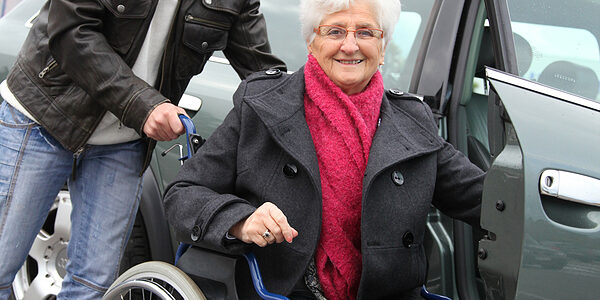
Is your elderly loved one still driving? Perhaps she is a good driver who doesn’t have any problem getting from one place to the other in her vehicle so for the most part, you don’t worry about her driving. But with winter just right around the corner (or maybe it’s already arrived depending on where you live), even a skilled driver can struggle to drive safely.
Having someone help your loved one with transportation during the winter months can be a great idea. While an occasional cab or driving service might work, those come with expenses and often can be inconvenient or confusing. Trying to use public transportation can be even more confusing and inconvenient, not to mention, that your loved one has to get to the pick-up locations on her own and they often aren’t easy to get to.
Having a companion care at home provider step in and help with transportation during the winter months can help ensure your loved one gets where she needs to go safely and provide you the peace of mind that she’s not out navigating the roads all by herself. Even if you live near your loved one, it can be nice to have a companion care at home provider help with rides during the day when your schedule is full with other priorities.
But why is winter driving so much more difficult for seniors than summer-time driving? Let’s look at some winter-specific travel issues that may make letting your elderly loved one do all the driving herself a dangerous situation.
- It gets dark earlier. Due to the Earth’s tilt on its axis, every place north of the equator sees less sun in the winter. For some it may cut those daylight hours to only about 8 a day, making any early morning or late afternoon drives a lot darker. For many seniors, driving at night is tougher to navigate as lights reflect, depth is thrown off and common way-finding landmarks are harder to spot.
- The inclement weather. In some areas of the country, the weather does get better in the winter, but for the majority of the country, snow and ice are a regular part of winter, making travel dangerous. Roads can get ice-covered or snow-packed, roadside signs can get covered in snow making them impossible to read, and car windows can be difficult to see out of. Whenever there is inclement weather occurring, consider having someone else drive your loved one like her companion care at home provider or a family member. It’s not worth risking the injury.
- It’s cold. While cars come with heaters, what happens if your loved one gets stuck somewhere and she’s by herself? Winter’s cold weather can be a minor inconvenience and make it dangerous within a short period. Having someone else drive doesn’t guarantee she won’t get stuck but it will guarantee she won’t be alone.
No matter how secure your aging loved one feels about her driving abilities, encouraging her to seek transportation assistance during bad weather can help ensure she arrives where she wants to go safely.
If you or someone you know needs companion care at home in St. Cloud, MN, contact Adara Home Health. We provide quality and affordable home care services for many fragile or senior members in the communities we serve. Call us at (888) 660-5772 for more information.

